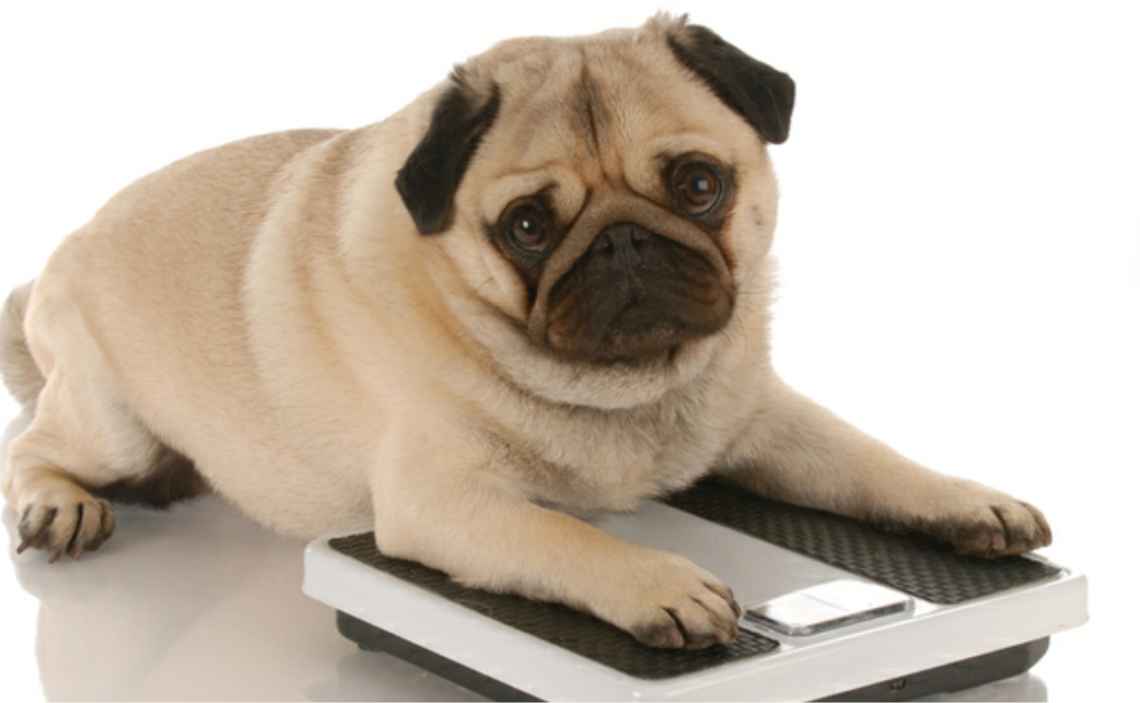
Obesity is a growing problem for people in our society, and unfortunately, it’s the same for our pets. According to the Association for Pet Obesity Prevention, over 55 percent of dogs are obese. If your dog is obese, he or she will have a higher risk of chronic and life-long conditions.
What is Considered Obese in Dogs?
If your dog is between 15 – 20 percent (or more) over his or her ideal weight, or you can’t feel your dog’s ribs through his skin, fur and body tissue, he or she is considered obese. The breed, genetic makeup, age, gender, lifestyle and your dog’s diet all contribute to the likelihood your dog will become overweight.
Canine obesity is common in dogs of all ages but tends to occur in middle age (5 – 7 years old in most breeds). Female dogs are at higher risk of gaining weight; spayed or neutered dogs have an even higher chance of becoming obese. Behavioral problems related to food or your own feeding behavior may also impact your dog’s weight.

What Causes Obesity in Dogs?
There are several reasons dogs gain too much weight. The most common cause is over feeding and not ensuring your dog receives enough exercise. Obesity is more common in old age because it is natural for the dog to not be able to exercise as much. Unhealthy eating habits – like feeding your dog high-calorie foods and frequent treats (especially table scraps and “people food”) can also cause your dog to become overweight. Hypothyroidism, insulinoma and hyperadrenocorticism are other common causes.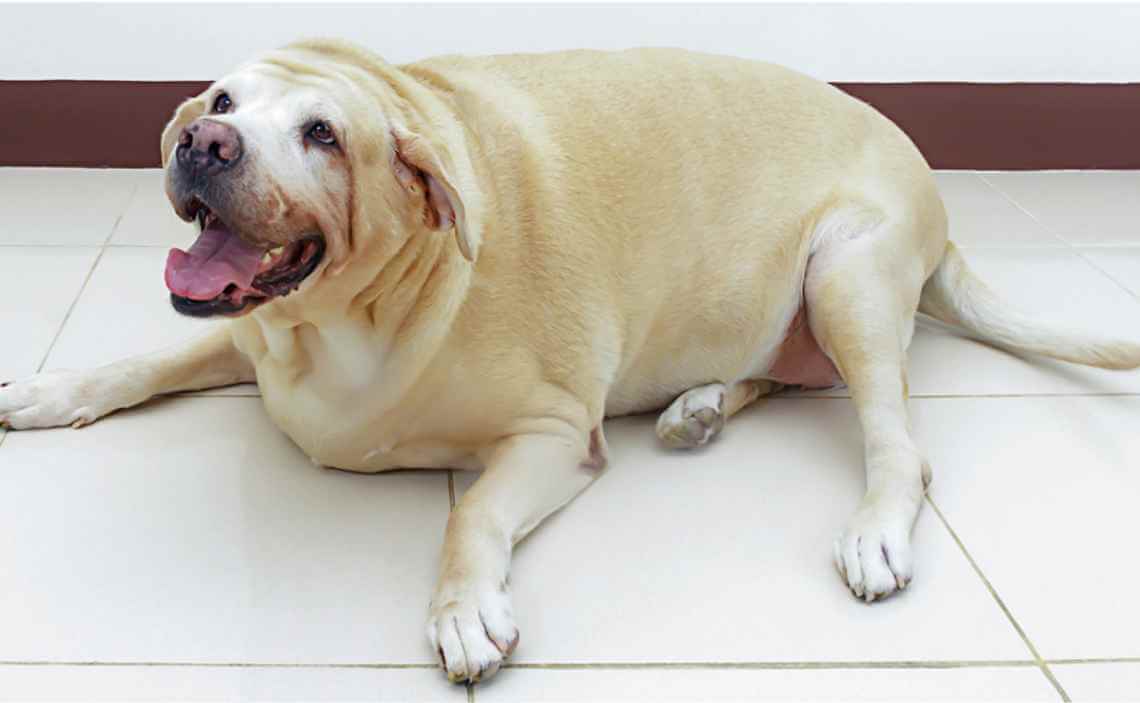
How Does Obesity Affect Dogs?
Obesity is especially a problem for small and toy breeds because they don’t have as high energy needs as larger dogs. Small dogs especially can develop respiratory and heart problems from excess weight.
Some people think chubby dogs are cute and don’t realize the serious implications of excess weight for dogs. Owners need to understand that letting your dog become obese can shorten your dog’s lifespan and increase the risk of serious health problems. Lack of stamina, intolerance to hot temperatures and increased risk of surgical complications are concerns affecting all overweight dogs, but there are other serious conditions that dog owners should be aware of.
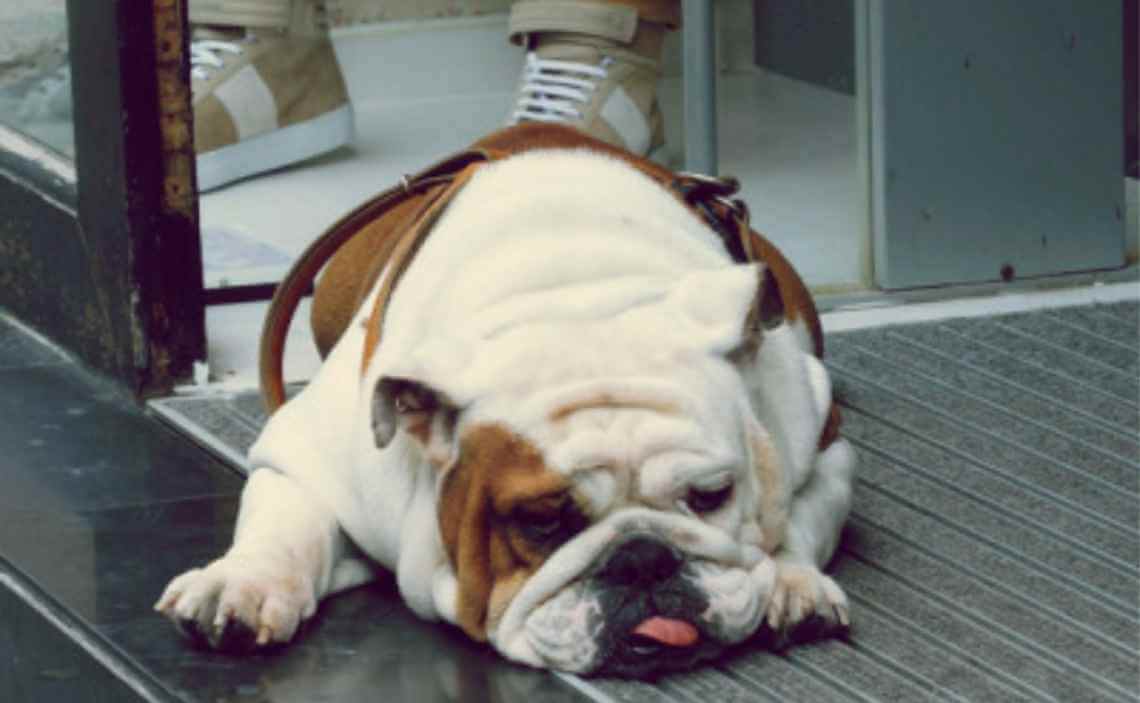
7 Serious Consequences of Canine Obesity
Here are seven of the most serious dangers of obesity in dogs.
-
Respiratory problems
Overweight dogs are at risk for developing breathing problems like shortness of breath and sleep apnea. Extra fat on the dog’s chest makes it harder for the dog’s lungs to work properly. That means your dog may not be getting the oxygen he or she needs to stay healthy.
-
High blood pressure
High blood pressure can be fatal for dogs. This is because the heart must work overtime to pump blood throughout the body. The extra work can lead to congestive heart failure, which can be fatal if left untreated.
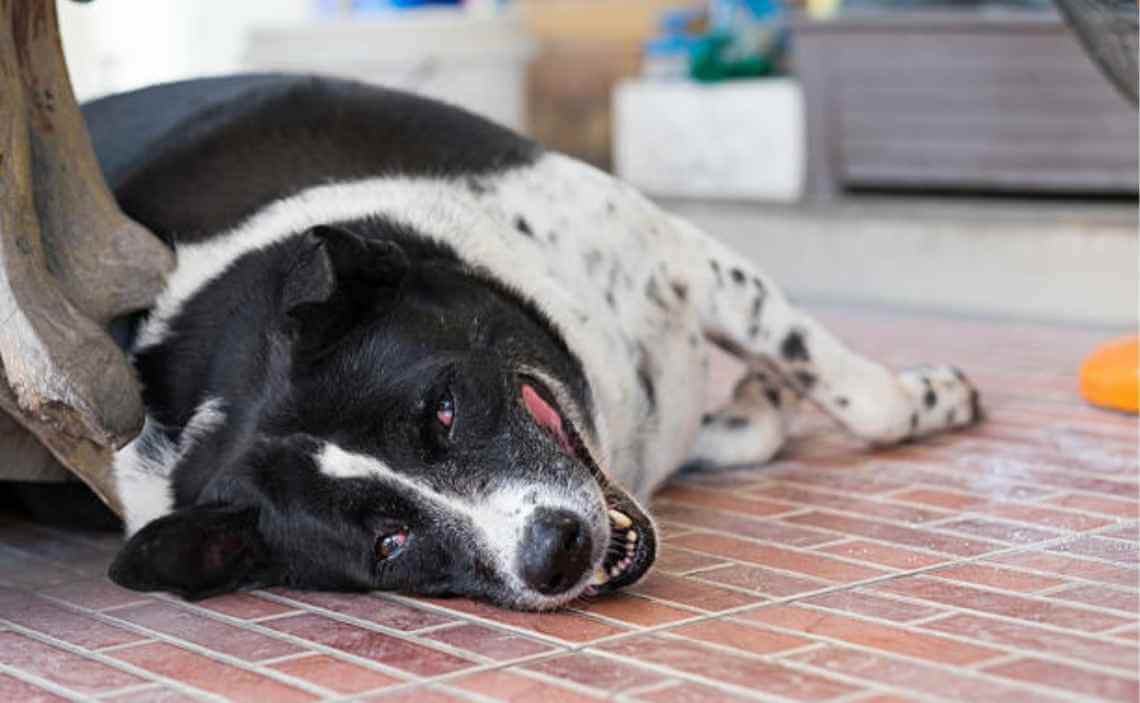
-
Diabetes
Diabetes has become a major health problem in dogs; many experts say the growing rate of obesity is linked to the increasing number of dogs with diabetes. Just like in humans, diabetes can be difficult to treat in dogs and can lead to other diseases that may be fatal.
-
Liver disease
When a dog (or human for that matter) is obese, all of the organs and systems in the body must work much harder, including the liver. When the liver doesn’t work properly, the liver will not be able to purify the body and get rid of toxins. A number of health problems can develop, some of which are untreatable and can lead to death.
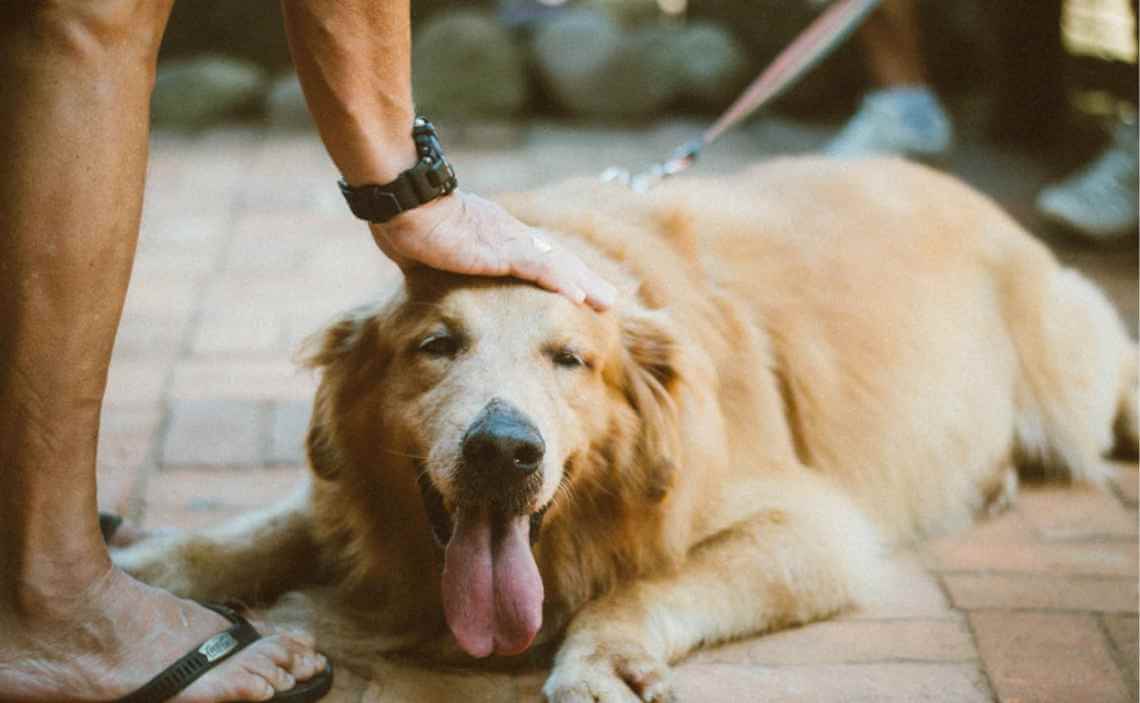
-
Osteoarthritis
Joint issues are common in obese dogs. Arthritis is painful and can cause joints to swell so much that even a short walk is uncomfortable or intolerable for the dog. There are supplements that can help with arthritis in the joints but ultimately, weight loss or prevention are the best ways to reduce the pain of arthritis.
-
Compromised immune function
Obese dogs are more susceptible to viral and bacterial illnesses and may not recover as easily from illness as dogs that are fit and lean. This is caused by the immune system not functioning as well as it should due to the excess weight. Most of these types of illnesses are not life-threatening on their own but over time can compromise the dog’s system even more. They also can be expensive to treat because they require prescription medication.
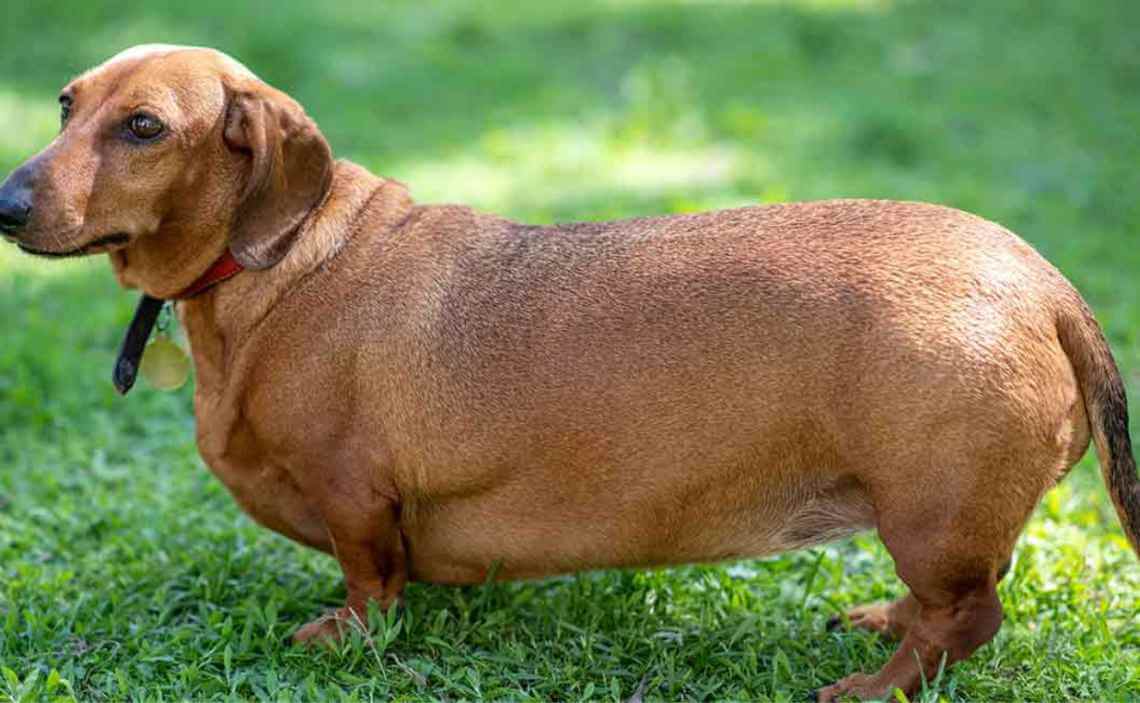
-
Increased risk of cancer
One of the most serious health problems caused by obesity in dogs is an increased risk of cancer. In breeds like retrievers (which are already prone to developing tumors and cysts), being obese raises the chance any tumors that grow will be malignant.
How to Help Prevent or Reduce Canine Obesity
There are no miracles when it comes to weight loss – eating less and exercising more is the basic formula. However, you should definitely make an appointment to see your veterinarian if you think your dog is overweight. Your vet can help tailor a weight-loss program for your dog without underfeeding your dog. Starving your dog is just as harmful as overfeeding.
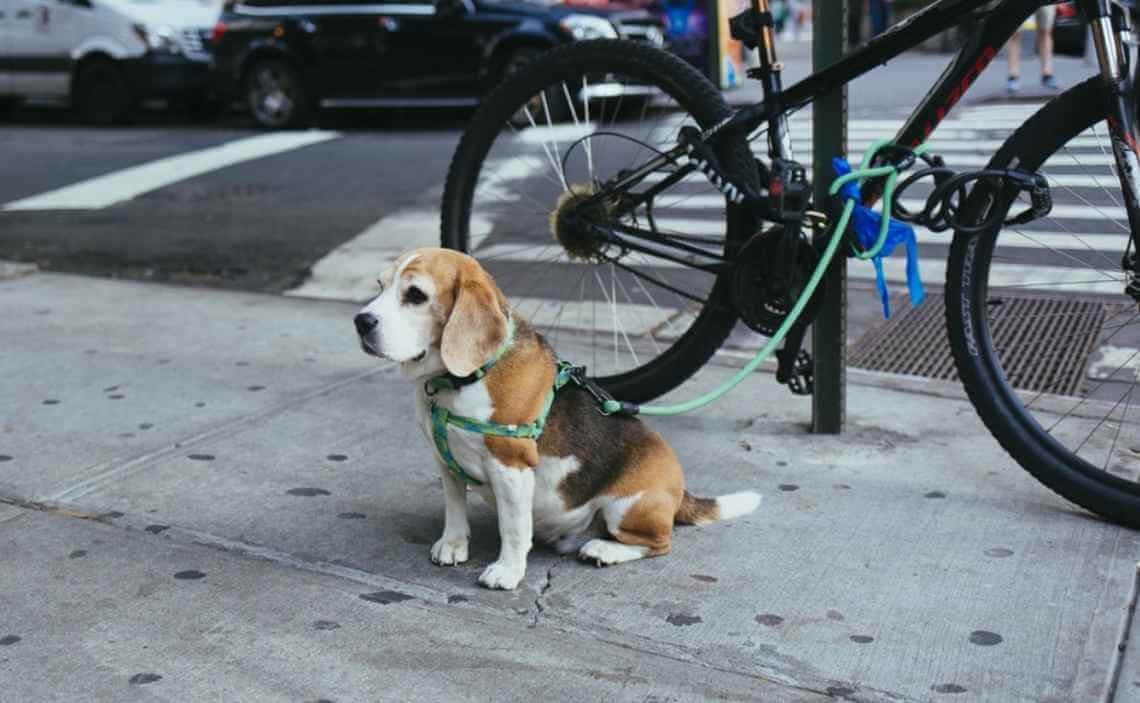
Making sure your dog receives adequate exercise is essential for your dog’s overall health, including obesity prevention. Depending on the level of exercise your dog is capable of, there are a variety of exercises to consider.
- Daily walks
- Jogging
- Hiking
- Playing fetch
- Training exercises
- Playing with project toys
- Scent training
- Agility training
In addition to these excellent sources of exercise for your dog, consider bringing him or her to daycare regularly. Dogs that attend daycare receive many benefits, including exercise, stimulation and socialization.
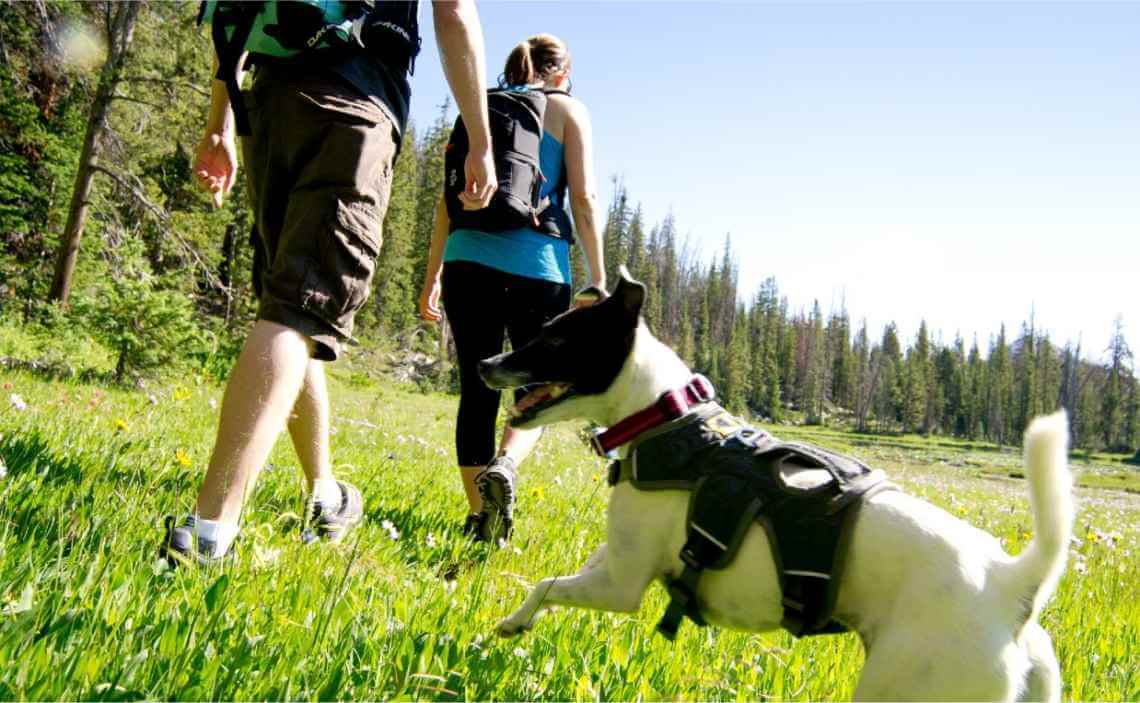
Obese dogs can lose weight and become healthier. Reach out to your family vet to learn more about how to help your dog live a long and healthy life. Your veterinarian is your best resource to ensure the health and well-being of your dog.
Have you had an overweight or obese dog? Were you able to help him or her lose weight? What worked for your dog? Please share with the rest of the Canine Campus community in the comments below.
Source:
“2018 Pet Obesity Survey Results.” Association for Pet Obesity Prevention, 12 Mar. 2019, petobesityprevention.org/2018.













I truly want to thank you for all the information you give us dog owners. And thank you for your time and caring . Keep up the great work. You truly have helped so many. Take care, Always Kara
Thank you for your kind words and for stopping by the Canine Campus blog!
I have a Golden Retriever/Australian Shepherd mix who’s 12 and weighs 60lbs. She’s “the healthiest I’ve seen her” her vet said at her last physical. I feed Solid Gold low calorie low fat fish diet since she has an intolerance to fatty food. My vet said since the previous owner fed her Eukanuba only and nothing else it causes issues. She 70lbs. when I rescued her. Changed her diet give loads of raw veggies, she’ll eat any raw veggie or just about, carrots are like candy to her! She gets minimal table scraps and it’s rare. They don’t know quantity or what they’re missing if you make a big thing about a simple meal. She waits for asparagus stalks when she hears me snapping them. Onions are a major problem, she ate a small piece of raw onion and was deathly I’ll for 5 days. If I wouldn’t eat it I wouldn’t give it to her besides her kibble! lol! Healthy food healthy pet.
I’m so glad to hear your dog is doing so well! Thanks for visiting the Canine Campus blog and sharing your experience!
We have a yorkie we rescued and it weighs close to 20lbs. We live in a very rural area and our vet is not familiar with dieting and dogs. So I have been reading a lot to see what would work for our situation. My dogs I cook for bake broil or grill chicken, elk, beef or Buffalo. I feed them according to weight and they do well. They hate veggies so pet well-being makes a great supplement for all their needs.
Anyway I cut the obese dog, Angie, by 20%. My? Is how long before I cut more?
Hi Doris,
As I stated in my previous response, Canine Campus is a dog boarding, daycare and grooming facility. We are not licensed veterinarians and cannot make food recommendations for your dog. I recommend you contact your local Humane Society and ask for referrals for veterinarians who will work with your specific needs. Look for veterinarians who offer a sliding scale or video or teleconferencing options since you are rural. Best of luck to you and your Yorkie!
I have obese yorkie we adopted her she probably weighs close to 20lbs. I have read to cut food by 20%. My vet doesn’t know much about diets for dogs. We live in a very rural area. My question is when do I cut food again. I cook for them bake broil or grill chicken beef elk or Buffalo. They get supplements for veggies. I have tried everything to get veggies in them.. anyway any recommendations I have cut her food like this for 2 weeks and walked her too. We have lost 1.5 lbs. But she is cranky…
Thank you for stopping by the Canine Campus blog. Unfortunately, we are not veterinarians and can’t make recommendations for feeding your dog. Often local pet shelters (like the Humane Society) can offer referrals to veterinarians who will work with you on a sliding scale or remote teleconferencing. We hope your Yorkie is feeling better and not so cranky!